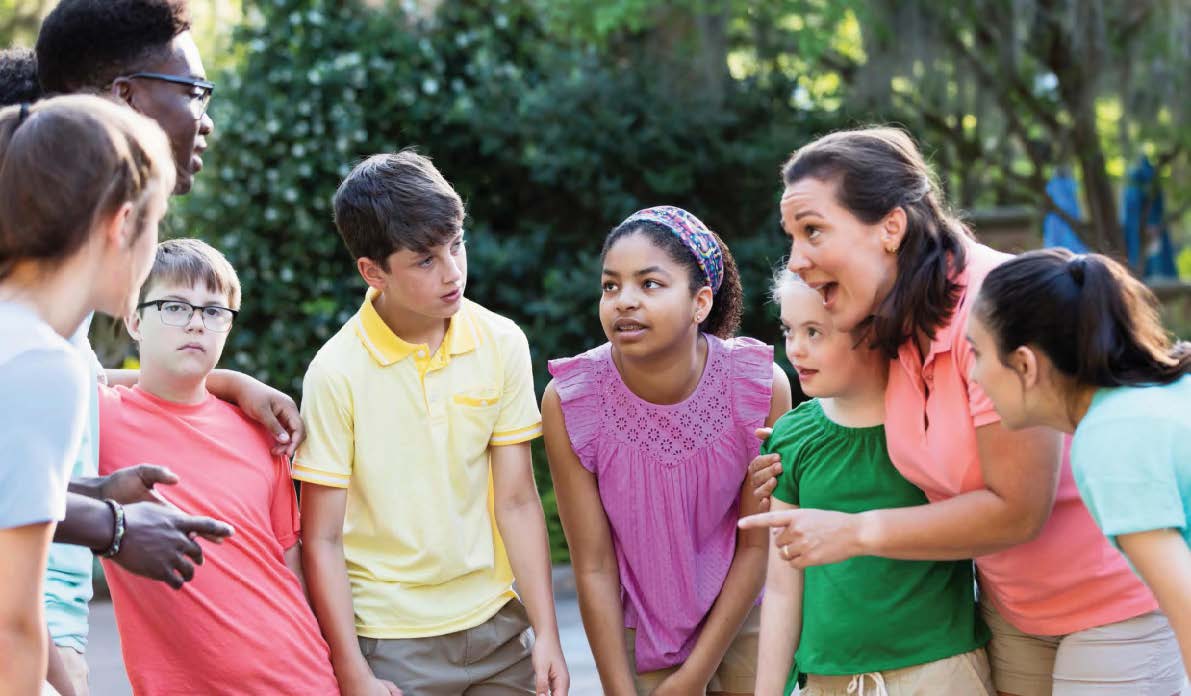The great news for parents and caregivers is that more programs are taking steps to accommodate those with special needs and provide more welcoming environments for them and their families. Everyone, including those without disabilities, is enjoying the benefits of inclusion!
INCLUSION IS THE LAW
It is not just the right thing to do – inclusion is actually a legal requirement in the United States. Federal law does not allow programs to discriminate against those with disabilities, though it can still be challenging to find programs that are a good fit for an individual's particular needs, interests and abilities. In such cases, it's a good idea for parents and caregivers to look to their local disability services agency for help securing disability-related accommodations and other supports that will enable full inclusion.
ENGAGEMENT HELPS BUILD INTERPERSONAL SKILLS
Many individuals with autism struggle with the social skills necessary to build friendships and broaden their social circle beyond immediate family. At Regional Center of Orange County (RCOC), we find that children and adults benefit from group-oriented socialrecreation programs that encourage interpersonal engagement with peers.
However, one size does not fit all. Some individuals will thrive with team sports, like basketball or field hockey, while others could find that intense action stressful, and may instead thrive in smaller groups or more low-key group environments, such as a computer coding camp or art classes.
SOCIAL AND RECREATION PROGRAMS HELP BUILD CONFIDENCE
Often, individuals with impairments like cerebral palsy encounter well-meaning, but misguided, attempts to shield them from the risks that come with participation in sports and other physical activities. Of course, sensible precautions should be taken to minimize risk, but it's important not to place undue limitations on individuals who, when given opportunity, may far exceed even our highest expectations for what they can achieve.
We see this often with children. A child with sensory issues may at first be averse to water which can make it unsafe for them to be around swimming pools and lakes. But when they get involved in a swimming class with an encouraging and supportive instructor and other children with whom they can have fun swimming, their confidence can grow, and they may eventually become desensitized to something that previously triggered fear.
OTHER BENEFITS OF SOCIAL RECREATION
Physical social-recreation activities like swimming, karate and dance can also enhance strength and fitness, which have a cascade of positive benefits for an individual's overall well-being and quality of life.
I also know of parents who find that children they describe as "picky eaters" have become more open to trying new foods after being enrolled in physically-active social recreational activities. Some say that's due to an increased appetite from the exercise, but it may also be better overall health they're enjoying as many of these individuals also report better sleep quality when they're physically active.
TO EACH HIS OWN: Some individuals will thrive with team sports while others could find that intense action stressful, and may instead thrive in smaller groups or more low-key group environments, such as a computer coding camp or art classes.
TO EACH HIS OWN: Some individuals will thrive with team sports while others could find that intense action stressful, and may instead thrive in smaller groups or more low-key group environments, such as a computer coding camp or art classes.
